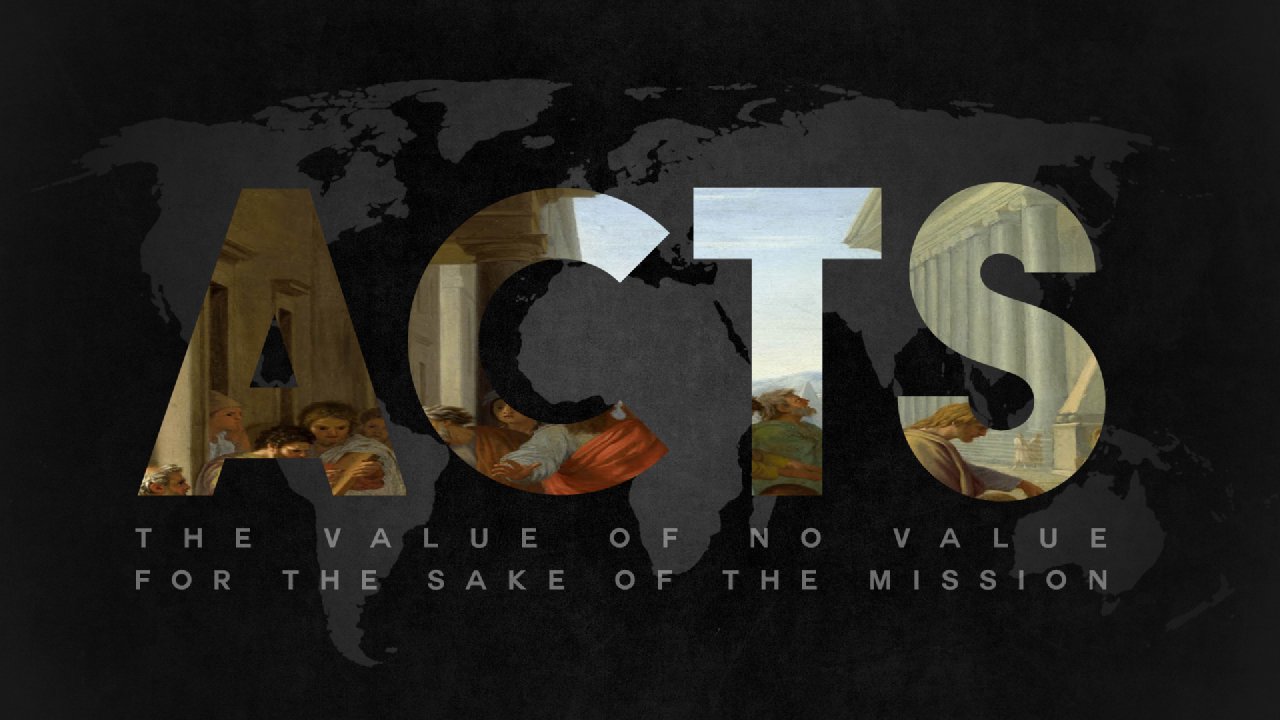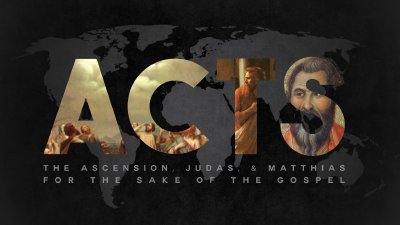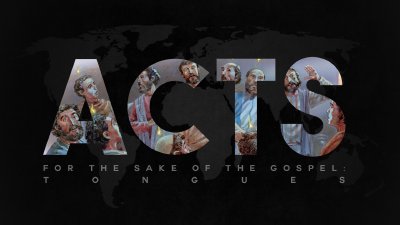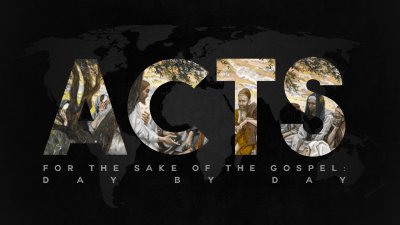For The Sake Of The Mission
Additional Scripture References:
Matthew 8:22; Luke 14:26; John 11:25-26; 1 Peter 3:15; Isaiah 50:6-7; Luke 9:51-56; Mark 1:14-15; Luke 3:8-18; Matthew 19:30; Matthew 20:15-16
Study Questions:
1. What things stuck out to you from this text? Is there anything in this text that challenges you?
2. How often do you consider your “right now” in terms of eternity? Why do we tend to be so near sighted?
3. “Trials without grace end up in hollow mission grounded in bitterness and anger towards something or someone. When you have grace with not trials you end up with a hollow freedom that is contingent upon the avoidance of difficulty or pain or inconvenience.” Which side of that coin do you tend to be on? How can the gospel fill in where we are lacking?

The Value Of No Value
For The Sake Of The Mission
November 6, 2016 • Michael McCracken
The Ascension, Judas, & Matthias
September 6, 2015 • Michael McCracken
Study Questions: 1. How can you relate to the disciples in the moment that Jesus was taken into heaven? 2. Are we taking Jesus' command seriously to be His witnesses? If not, what would change in and about our life if we did? 3. What do we learn from Judas? Additional Scripture References: Psalm 103:19; Philippians 3:8-9; Isaiah 53:10
Tongues
September 13, 2015 • Michael McCracken
Study Questions: 1. What do you love about Pentecost here in Acts 2? 2. What challenges you or makes you feel a little uncomfortable? Why do you think this is so? 3. What about your life points to Joel's prophecy being true or fulfilled? Additional Scripture References: Philippians 4:8; 1 Corinthians 2:14; 2 Corinthians 5:17; Romans 8:28; Galatians 2:20; 2 Kings 5:9-11; John 3:5-8; Acts 11:16-17; Ephesians 4:5; Romans 8:9; 1 Corinthians 12:13; Titus 3:5-6; 1 Corinthians 12:11; 1 Corinthians 3:6
Day By Day
September 20, 2015 • Michael McCracken
Study Questions: 1. To what (or whom) are you devoted? What proof is there? 2. What do you think of when you think about fellowship? What would change in our life if our "fellowship" paradigm was more in sync with the early church? 3. Why does Luke speak so much about the breaking of bread? Why is it significant that the people were receiving food with glad and generous hearts? Why is it so hard to embrace the day to day? Additional Scripture References: Mark 16:20






